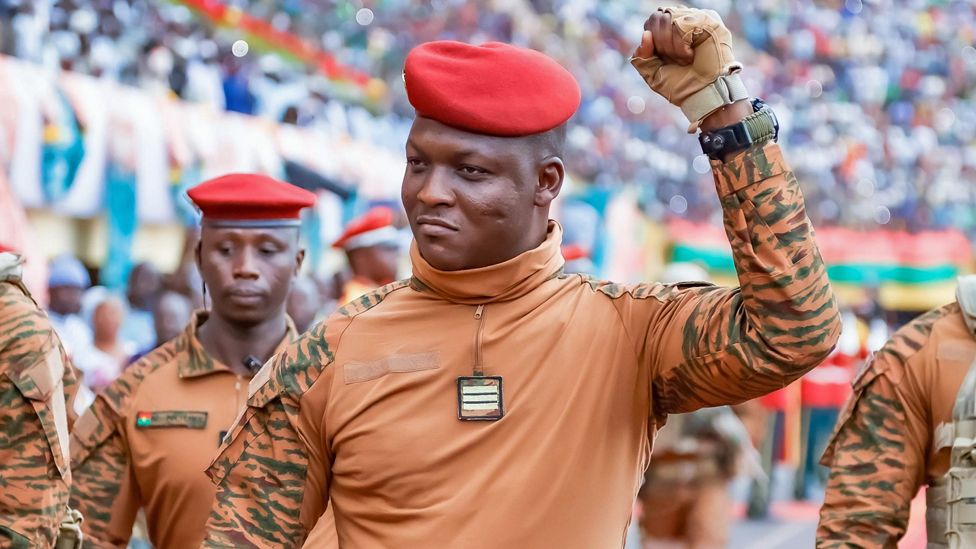Capt Ibrahim Traoré: Why Burkina Faso’s Junta Leader Has Captured Hearts and Minds Around the World
Ibrahim Traoré, the 37-year-old military leader of Burkina Faso, is becoming a prominent figure in African politics, gaining attention with his charismatic leadership style and anti-Western rhetoric. Traoré’s rise to power in 2022 through a coup has allowed him to present himself as a formidable proponent of pan-Africanism, positioning his nation against what he perceives as Western imperialism and neo-colonial influences.
His policies and rhetoric have struck a chord with many Africans, who view him as a modern-day successor to revolutionary icons like Thomas Sankara, the former Burkina Faso president celebrated for his Marxist ideals. According to Beverly Ochieng, a senior researcher at Control Risks, Traoré’s appeal lies in his ability to articulate the frustrations of a continent rich in resources yet plagued by poverty. “People are saying, ‘This is it. He is the man,'” she noted, reflecting a growing discontent with traditional Western alliances.
Shift in Alliances and Economic Policies
Since taking control, Traoré has realigned Burkina Faso’s foreign relations, moving away from France and forging strong ties with Russia. This alliance includes the presence of Russian paramilitary forces and the adoption of leftist economic strategies. His government established a state-owned mining company, mandating foreign partners to yield a 15% stake in their operations and share skills with the local workforce.
| Policy/Action | Description |
|---|---|
| State-Owned Mining Company | Creation to manage Burkina Faso’s mineral wealth. |
| Foreign Firm Regulations | 15% stake requirement and mandatory skills transfer. |
| National Gold Refinery | Construction of a local gold refinery for the first time. |
Despite his ambitious economic reforms, which have included securing new gold mining licenses from firms like Russian miner Nordgold, Traoré’s administration has antagonized Western firms. For instance, Sarama Resources resorted to arbitration after losing its exploration license in late 2024. Moreover, two gold mines previously owned by a London-listed company were nationalized, driving home the junta’s commitment to seize control of foreign assets.
Rise in Popularity and Challenges Ahead
Traoré’s popularity has soared across Africa, with experts like Enoch Randy Aikins asserting he has become one of the continent’s most beloved leaders. His rise has been aided by social media, where he has been portrayed in a glorified manner, even leading to the proliferation of AI-generated content that celebrates him.
Despite his growing following, not all responses to his governance have been favorable. Criticism from France’s President Emmanuel Macron labeled him as part of a problematic alliance with neo-imperialists, asserting that Russia and China are stoking unrest in former French colonies. Moreover, Traoré’s inability to resolve a long-standing insurgency poses significant challenges to his leadership.
Critics argue that while he captivates youth, reflected in the nation’s demographic—where the median age is just 17.7 years—his crackdown on dissent and opposition remains a concern. The usage of propaganda to enhance his image has led to questions about the actual effectiveness of his policies and long-term governance.
According to Rinaldo Depagne of the International Crisis Group, Traoré connects with the youth by channeling the revolutionary spirits of older leaders, yet echoing sentiments of disillusionment with democracy, which many feel has failed to deliver meaningful change.
With mounting pressure from internal strife, rising expectations from citizens, and scrutiny from international observers, the future remains uncertain for Traoré. Nevertheless, he continues to galvanize support, promising a vision of sovereignty and self-determination for Burkina Faso and beyond.


